What's On This Page?
ToggleToday, we’re tackling an important question many of you have asked in regard to thyroidectomy: “Can I and should I take thyroid supplements if I no longer have a thyroid gland?” Whether your thyroid has been removed due to disease, such as thyroid cancer, or you’ve undergone treatment for conditions like hyperthyroidism, understanding how to manage your health afterward is crucial.
Understanding the Function of the Thyroid Gland
First, let’s remind ourselves why the thyroid gland is so important. This little butterfly-shaped organ at the base of your neck is essential for regulating your metabolism, body temperature, and much more. When it’s gone, your body loses a key player in its endocrine system. It releases thyroid hormone, as well as calcitonin.
You may not realize this, but the endocrine system consists of other glands beside the thyroid, it also includes your pancreas, pituitary gland, ovaries, testes, adrenal glands and pineal. Learn more about the ENDOCRINE SYSTEM.
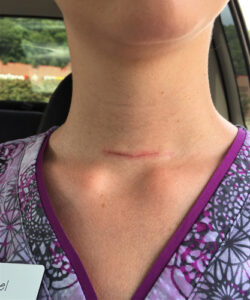
6 Reasons for Thyroidectomy
A thyroidectomy, which is the surgical removal of all or part of the thyroid gland, is often recommended for several reasons. Many doctors in the US do this type of surgery, and I believe that there are surgeons at Tampa General that can do it with a very minimally invasive technique, possibly through the armpit. I believe it’s termed “robotic scarless thyroid surgery” or something similar.
Before you book a regular surgery which requires longer healing times and a cut at the base of your throat (older method), at least check with the Norman Parathyroid Center to see if they offer a scarless option: CLICK HERE. There are other surgeons and clinics who offer robotic scarless minimally invasive surgeries too.
1. Thyroid Cancer: This is perhaps the most straightforward indication for thyroidectomy. Removing the thyroid gland is a primary treatment for most types of thyroid cancer to prevent the spread of malignant cells.
2. Goiter: A significantly enlarged thyroid gland (goiter) can cause symptoms such as difficulty breathing, swallowing difficulties, coughing, changes in your voice, or an awkward lump in your neck. In cases where the goiter is causing these symptoms or becomes too large, a partial or complete thyroidectomy may be necessary. If you have a goiter, or had one, Be Aware of These 6 Medications.
3. Hyperthyroidism/Graves’ Disease: For some patients with hyperthyroidism, particularly those for whom medication does not work or is not suitable (such as in pregnancy), surgery to remove the thyroid may be the best option to control the overproduction of thyroid hormones.
4. Thyroid Nodules: Some thyroid nodules can be suspicious for cancer or cause hyperthyroidism if they produce thyroid hormones independently. If they are large or symptomatic, or if a biopsy cannot rule out cancer, surgery may be recommended.
5. Cosmetic Reasons or Local Symptoms: In cases where the enlarged thyroid gland’s appearance causes psychological distress or significant cosmetic concerns, or if it causes physical symptoms like pressure effects, surgery might be considered as a treatment option.
6. Radiation Therapy Failure or Not Good: In some cases, such as resistance to radioactive iodine therapy (used primarily for hyperthyroid conditions) or when radiation is not advisable (like during pregnancy), a thyroidectomy might be done.
Each case for thyroidectomy is unique, and if you’re thinking about it, get a second opinion. The decision to undergo this surgery depends on a variety of factors including your medical history, prognosis, overall health, the nature of the problem as well as the risk-to-benefit ratio. Undergoing a thyroidectomy requires a couple of opinions, and much consideration.
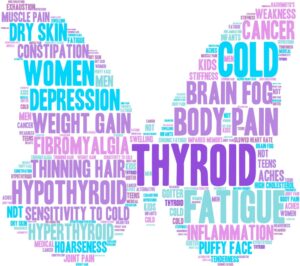
The Role of Thyroid Hormone Replacement Therapy
Since thyroid hormones are essential for life, their absence due to the removal of the thyroid necessitates replacement. Here we turn to thyroid hormone replacement therapy.
Options include synthetic hormones like Levothyroxine or natural formulations like desiccated thyroid. The key is finding the right type and dosage for you, under medical supervision, of course.
Should You Take Thyroid Supplements?
This brings us to the crux of the matter. There’s a big difference between non-prescription thyroid supplements and prescribed thyroid hormone drugs. The latter replaces lost/missing hormone now that your thyroid gland is removed. You will need those drugs life-long. Whereas supplements can offer minerals and vitamins that support thyroid function (and I do recommend them), they cannot replace the hormones your body needs and had for its whole lifetime prior to thyroidectomy. Using prescribed hormone replacements ensures you receive a regulated, consistent dose necessary to maintain your health.
The Ubiquity of Thyroid Hormone Receptors
There are thyroid hormone receptors on nearly EVERY cell in your body, highlighting the hormone’s vast influence. Your entire body runs on this hormone so if your gland is removed surgically, your entire body begins to starve for thyroid hormone which you can’t secrete anymore due to a missing gland!
So taking natural supplements that enhance thyroid activity isn’t a bad thing, it fact I see it as a necessity – at least try because you are the owner of this body and you will know immediately how you feel taking something that improves sleep (ashwaghanda will do that), or something that improves T4 to T3 activation (because taking Synthroid (Levothyroxine) will give you T4 but it does not automatically convert to T3).
So as far as I’m concerned, maybe assistance from a supplement is in order???!!! Very few physicians argue with this point. Look at this picture I made – when you take T4 drugs (or even T4/T3 combo drugs like Armour), the drugs have to get into the cell to work well. Intracellular hormone levels cannot be measured. See below for all the things that block activation. There is more too, not listed in this graphic.
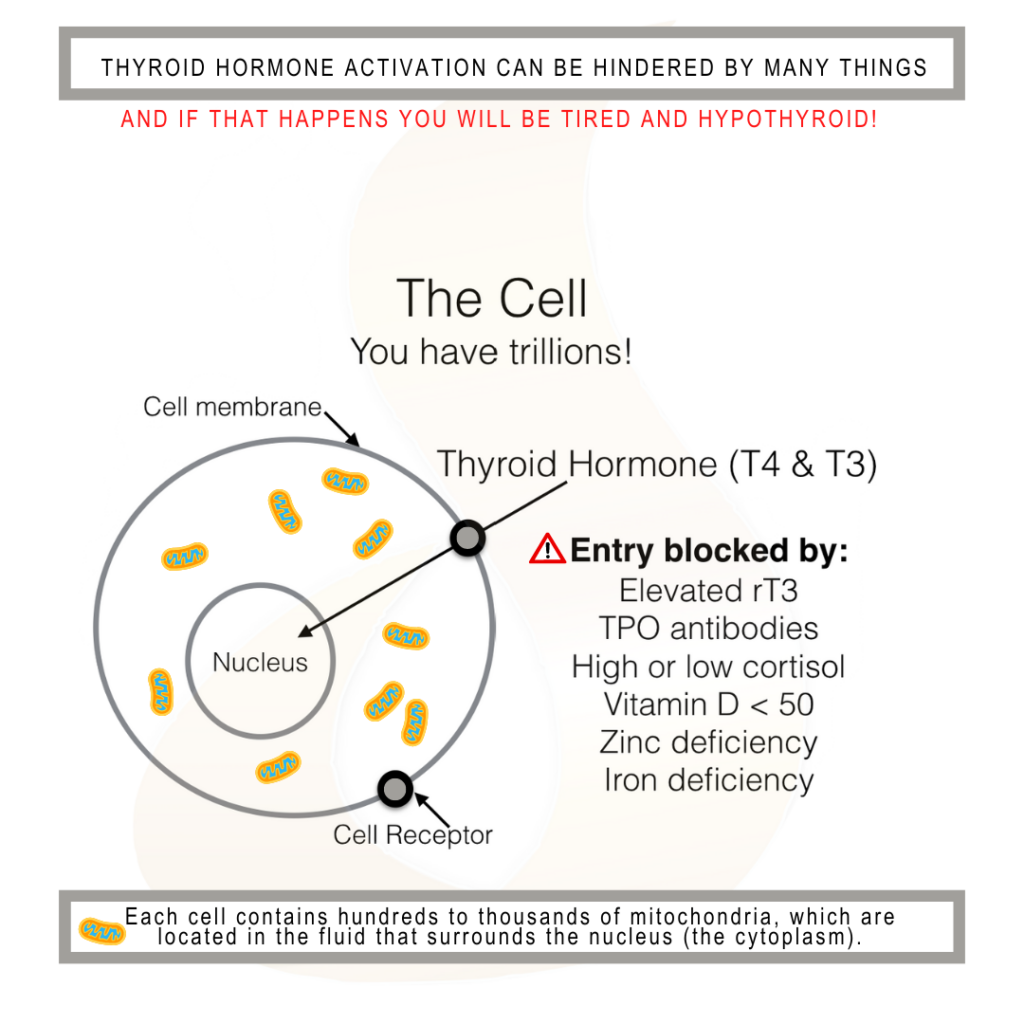
Thyroid hormone replacement post-thyroidectomy is not only vital for metabolism but also for numerous cellular functions throughout the body, influencing everything from your heart rate to how quickly you burn calories, how your skin feels, how fast your hair grows and whether or not you can focus and comprehend what you read. So even after a thyroidectomy, you need to support your body with nutrients, vitamins, minerals and herbs. It’s not normal to conduct life without your thyroid gland, this is a powerful gland that regulates mental health too!
Monitoring and Managing Your Therapy
Regular monitoring through blood tests is critical to ensure your hormone levels remain in a healthy range. Collaborating closely with your healthcare provider will help you manage your therapy effectively.
After a thyroidectomy, the drug levothyroxine (Synthroid®) is often prescribed to make up for the missing hormones. That is a pure T4 (thyroxine) med. If it’s not that medicine, it could be something like Armour which is a T3 and T4 combination. Sometimes they also give Cytomel® which is a prescription T3 medicine.
If you’ve had surgery for thyroid cancer, it might involve removing all or part of your thyroid, nearby lymph nodes, and sometimes the parathyroid glands. Look at the image below, you’ll see how the 4 tiny parathyroid glands (which regulate calcium) are situated behind your thyroid gland.
Usually, when a thyroidectomy is done, the surgeon preserves the parathyroid glands. But if for some reason, this can’t be done, or they get damaged and the parathyroid glands end up getting removed, you may also need to take calcium and vitamin D for life. Supplementation of calcium and D would only be needed if the parathyroid glands were taken out.
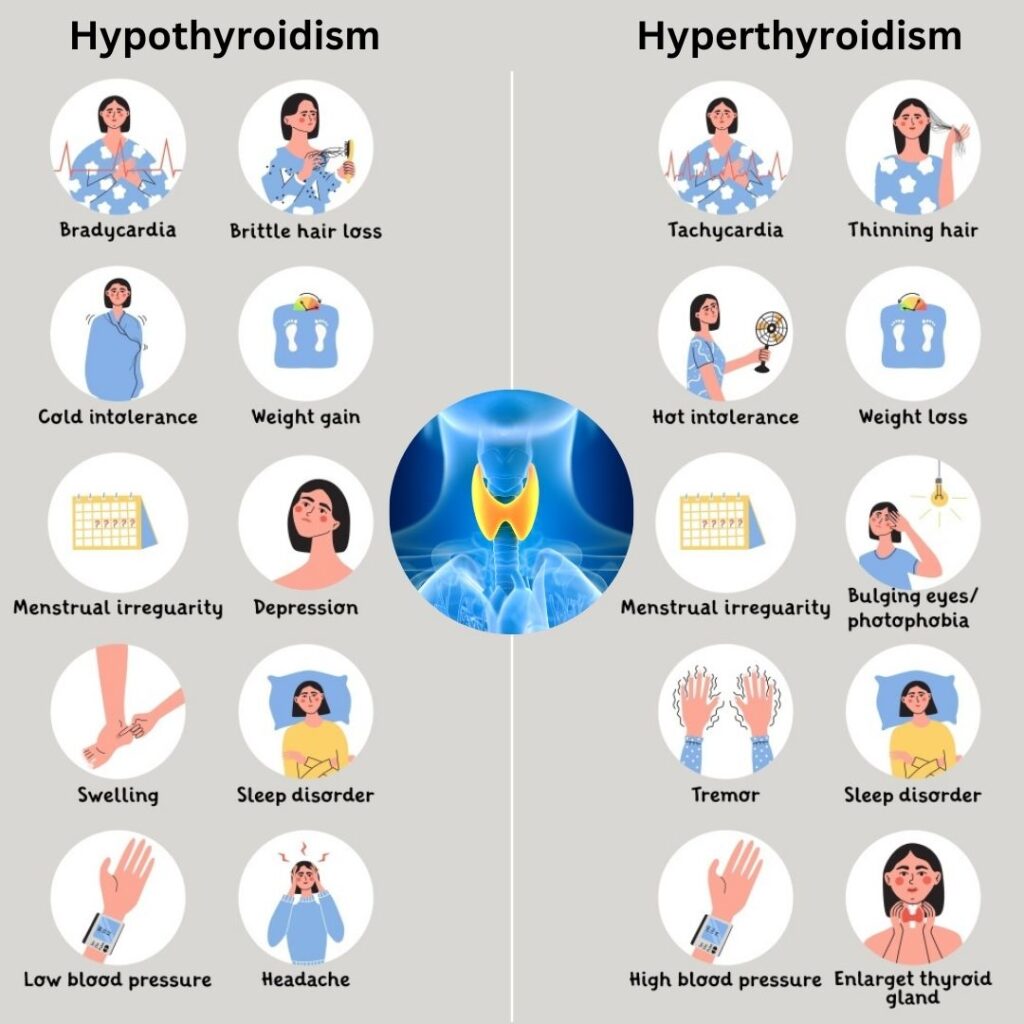
Dosages
Just a comment about dosages. Too much thyroid hormone medication will lead to symptoms of hyperthyroidism, this is pretty common when you first begin medicating yourself, and you should be aware of the symptoms.
If you experience hyperthyroidism when you start a medication, it means you need to back off the dose, that you’re getting too much. High doses of medicine that lead to hyperthyroidism could lead to weight loss, irritability, sleep problems, appetite changes, more frequent bowel movements, lighter menstrual flow, tremors, muscle weakness, and feeling hot and sweaty. It might also cause chest pain, cramps, and diarrhea.
If you’re not getting a high enough dose for your needs, you will have too little circulating hormone (which causes hypothyroidism). Symptoms might make you gain weight, feel tired, depressed, and unable to focus. You might also experience hoarseness, joint and muscle pain, constipation, menstrual changes, feeling cold, and have dry skin or brittle hair. Read my article, Top 11 Thyroid Supplements For Hypothyroidism – A Buyer’s Guide.
But if it isn’t yet clear, the reality is that if you’re thyroid gland is removed, you do need thyroid medicine, and you can in fact take dietary supplements and herbs to help you feel normal again.
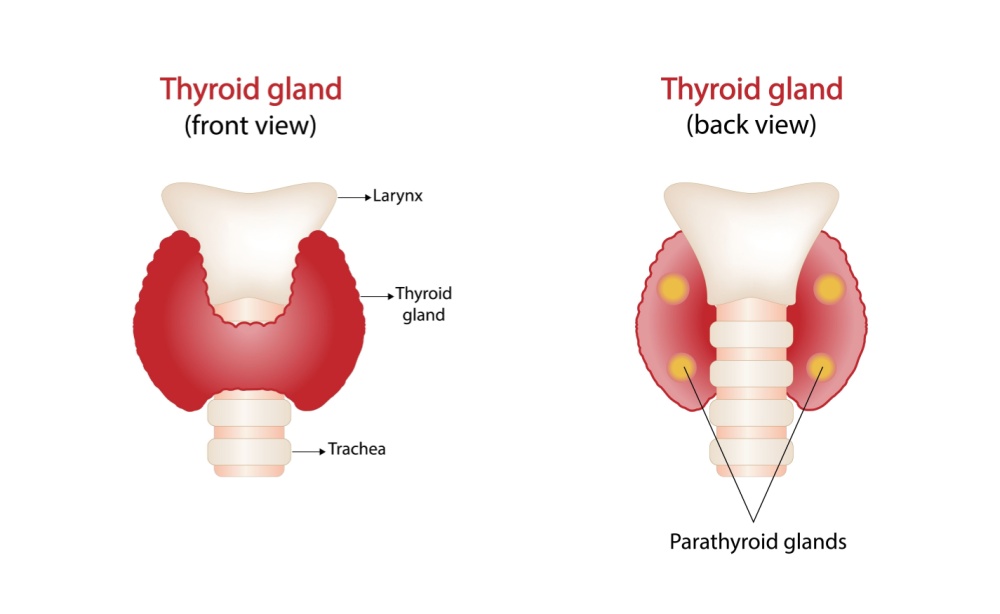
Lifestyle Considerations and Additional Support
Supporting your thyroid health doesn’t stop at medication. Diet, exercise, and lifestyle play a significant role. Foods rich in iodine, selenium, and zinc can support overall health, while regular exercise helps optimize metabolism. Don’t overlook the value of support groups and resources, which can be invaluable.
Dietary supplements, digestive enzymes, catalase and herbal remedies should all be okay for you, so long as you target the symptoms properly. Work with a practitioner to find out what’s ideal for you. Take advantage of my search box to research herbs that you like such as ashwagandha, mullein, catalase, betaine, iron, B complex, calcium, and others.
The Top 5 Supplements Post Thyroidectomy
After medication, you may need the following supplements, but ask your doctor if they’re right for you, and if you even need them. The follwoing list of supplements help address the direct and indirect effects of having no thyroid gland, ensuring that you can maintain a balance of necessary nutrients and hormones for overall health. Always ask your doctor what’s right for you. This list is not for everyone:
1. Calcium (with Vitamin D): This may be needed if the parathyroid glands got damaged or removed during your thyroidectomy.
2. Magnesium: This helps in the conversion of the inactive thyroid hormone (T4) to the active form (T3). So it increases T3 activation which is good. It also supports bone health, nerve function, and muscle relaxation, and is important for the synthesis of DNA and RNA. I have a gentle-on-the-stomach CHELATED formula at my vitamin shop.
3. Iron: Iron could be useful if you’ve undergone a thyroidectomy, especially if you experience anemia, which can be a side effect of hypothyroidism. Iron is essential for producing hemoglobin in your body, which helps carry oxygen in the blood. You’ll be tired without iron. That said, don’t overdo it, it is very constipating. It can also interact with Levothyroxine (reducing absorption). It’s advisable to take iron supplements separately from your thyroid hormone replacement meds, ideally several hours apart, to ensure both are effectively absorbed. Retest your ferritin after 90 days.
4. Selenium: This mineral is a trace element that plays a critical role in the metabolism of thyroid hormones. It helps convert T4 into the more active form T3 and supports overall thyroid function, which can be beneficial for those managing thyroid health after surgery and taking T4 medications. Additionally, selenium has antioxidant properties that may help protect against oxidative stress in thyroid tissue.
5. Ashwagandha: This herbal remedy is another possibility due to it being an anti-inflammatory antioxidant. It could help modulate the immune system, which would be advantageous in cases of autoimmune thyroid diseases like Hashimoto’s thyroiditis, often a reason behind thyroidectomy. This herb is one ingredient in my custom formula Thyroid Script® which is my most popular supplement. My HashiScript is another consideration, as it supports digestion and antibody balance (some people take those together). The Thyroid Script occasionally makes people sleepy. You can call my Customer Service person, 800-979-1405 and Sara will explain more about those two supplements and how to take them if you don’t get answers on my FAQs which are HERE.
Summary
Navigating life after a thyroidectomy presents challenges, but with the right approach, you can maintain a healthy and active life. Remember, it’s not just about replacing what’s lost but also about creating a balanced, healthy environment in your body. Stay informed, stay proactive, and as always, consult with your healthcare provider to tailor a plan that’s right for you.
Last thing while I’m thinking about it… other considerations (but not in my top 5 list above) would be Iodine because every cell has receptors for that mineral, and possibly vitamin B12 which your intestines *should* manufacture so long as you have a healthy microbiome or take probiotics. There are many other nutrients and herbals, as well as digestive enzymes which you could take to support yourself. Use my search box to look these nutrients up, I’ve written about them numerous times and have great blogs posted here for you.

Suzy Cohen, has been a licensed pharmacist for over 30 years and believes the best approach to chronic illness is a combination of natural medicine and conventional. She founded her own dietary supplement company specializing in custom-formulas, some of which have patents. With a special focus on functional medicine, thyroid health and drug nutrient depletion, Suzy is the author of several related books including Thyroid Healthy, Drug Muggers, Diabetes Without Drugs, and a nationally syndicated column.

